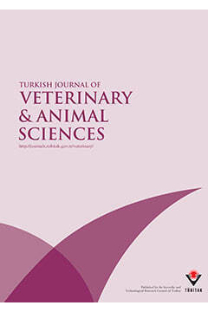Macro-Anatomical Investigations on the Skeletons of Porcupine (Hystrix Cristata) I. Ossa Membri Thoracici
Hystrix cristata, purcupine, ossa membri thoracici.
Macro-Anatomical Investigations on the Skeletons of Porcupine (Hystrix Cristata) I. Ossa Membri Thoracici
Hystrix cristata, purcupine, ossa membri thoracici.,
- ISSN: 1300-0128
- Yayın Aralığı: 6
- Yayıncı: TÜBİTAK
Ankara'daki çeşitli pastanalere ait dondurmaların mikrobiyolojik kalitelerinin belirlenmesi
İrfan EROL, Belgin SIRIKEN, T.Halük ÇELİK, Özlem KÜPLÜLÜ
Transferrin (Beta-Globulin)Polimorfism İn Angora Goat
Ferat GENÇ, Ahmet DODOLOĞLU, Semiramis KUTLUCA
Sadık YILMAZ, Derviş ÖZDEMİR, Z. Ender ÖZKAN
Ankara keçilerinde transferrin (Beta globulin) polimorfizmi
Sadık YILMAZ, Z. Ender ÖZKAN, Derviş ÖZDEMİR
Kısraklarda $PGF2alpha$ enjeksiyonları sonrası östrus, ovulasyon ve gebelik oranları
Mürsel DEMİREL, İbrahim TAŞAL, Ahmet SEMACAN
The Effect of Various Cemen Mixtures on the Quality of Pastrami I: Chemical and Organoleptic Quality
Mustafa NİZAMLIOĞLU, Yusuf DOĞRUER, Semra KAYAARDI, Ümit GÜRBÜZ
Çıldır Gölü (Ardahan,Kars)'ndeki Cyprinus carpio (Linnaeus,1758)'nun üremesi üzerine bir araştırma
